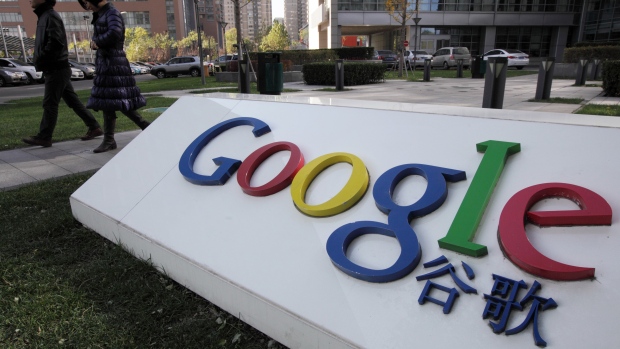Nov 30, 2018
Google's secret China project is why we need employee activism
, Bloomberg News

What does Sergey Brin, president of Alphabet Inc., think about Google's renewed attempts to open up shop in China? The Google co-founder, and the world's ninth richest man, has historically been reluctant to let the search giant operate in the country. To do so, the company would need to accommodate the Chinese Communist Party, helping it monitor civilians and censor politically sensitive search terms. That could mean, for example, no Winnie the Pooh.
Despite Brin's past apprehensions, Google has a team, under the project code name Dragonfly, that is secretly figuring out how to get its search engine back in China.
In an explosive story, the Intercept wrote Thursday that Brin was largely being kept in the dark by the company's head of operations in China, Scott Beaumont. One employee told the Intercept, “How much did Sergey know? I am guessing very little, because I think Scott [Beaumont] went to great lengths to ensure that was the case.”
It's possible that Brin has come around to operating in China since pushing for the company's withdrawal from the country in 2010. My colleague Mark Bergen has reported that Google never really abandoned its China ambitions, writing that "there was a running joke that the company was always one quarter away from some launch in China." Brin also defended Dragonfly at an all-staff meeting this fall.
But Thursday's story in the Intercept is a reminder that even in companies controlled by their founders, power is often diffuse. Different executives have different agendas and priorities. Even though he appears at all-hands meetings, Brin has stepped away from much of the day-to-day decision-making at Google, now just one of Alphabet's many businesses. Google CEO Sundar Pichai, who is reportedly an advocate for Dragonfly, is very much in charge. He works alongside dozens of executives whose opinions he cannot easily ignore.
Anyone who works at a big company knows that conflicting viewpoints abound. That's a fact that's often overlooked in press coverage. It's easy to write about what Google or Facebook is thinking. But of course, those companies are made up of sometimes thousands of humans who might not all be on the same page.
That dispersal of decision-making can present a challenge when it comes to figuring out who should be held accountable in moments of crisis. For example, there's an ongoing public comeuppance tug-of-war over Facebook's recent string of scandals. Some critics believe Sheryl Sandberg should be the central target of public ire, others finger Mark Zuckerberg. It's hard to figure out who's most at fault: Sandberg, who tried to downplay the company's crises. Or Zuckerberg, who underestimated the Russian interference issue altogether.
Large technology companies aren't democratic institutions. They're complex hierarchies with powerful founders at the top. Founders cannot constantly override their executives, nor can executives ignore their founder overlords. At the same time, these companies are dependent on their rank-and-file employees. It's not impossible to imagine a more democratic system, one where old-school political organizing tactics give those rank-and-file employees more sway over the system, and in a more organized way.
That's why these employee protests at Google are so exciting. They have the power to give political capital to the people who support them, but might not otherwise have much pull. Top executives might not like it—Pichai has said, "We don't run the company by referendum"—but that doesn't mean it's not effective.







